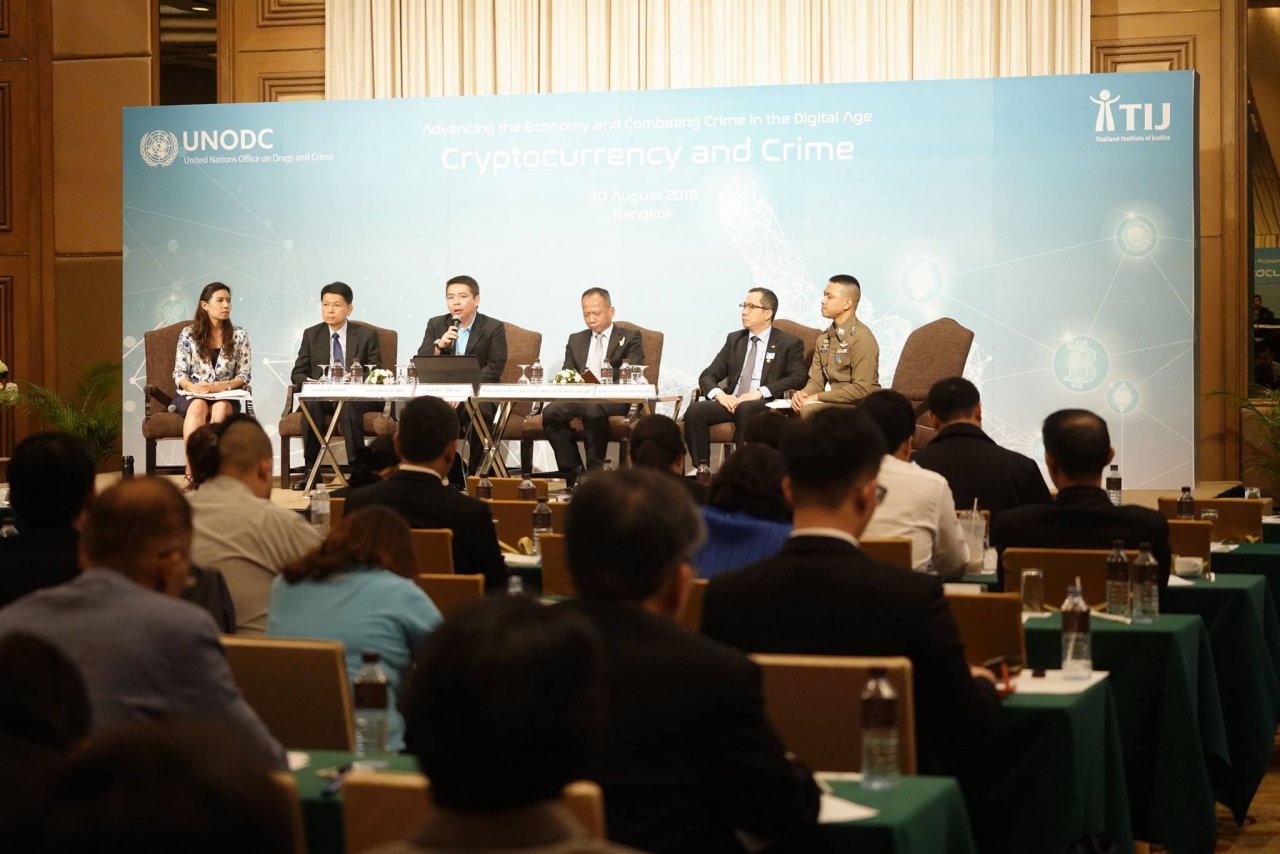Thailand: AMLO sounds alarm over cryptocurrency-fuelled scams
THE MONEY laundering watchdog is considering creating its own digital wallet to tackle cybercrime related to cryptocurrencies, an Anti-Money Laundering Office (AMLO) official said at a Bangkok seminar last week.
“We have discussed launching our own ‘AMLO Wallet’ to hold or confiscate digital currency from illegal sources,” Witthaya Neetitham, secretary of AMLO, at a seminar on the legal system and cryptocurrency crime, said.
Currently, there is no law allowing the agency to freeze or seize digital currency, nor anywhere to keep it.
As a result, Thai authorities can jail or extradite cybercriminals and confiscate their physical assets – but they cannot touch their digital assets.
Earlier this year the Technology Crime Suppression Division of the Royal Thai Police joined their Dutch counterparts to arrest a Moldovan suspected of operating a child-porn website that earned Bt123 million per year.
“We found bitcoin in his e-wallet, but had to leave it there because we don’t have any regulations [governing its seizure],” Pol Captain Ekkanit Natethong revealed.
Bitcoin is underpinned by block-chain, part of new finance technology that is proving a hurdle for law enforcement globally.
Witthaya said AMLO does have measures to combat crimes involving digital currencies licensed by the Securities and Exchange Commission, but it was still difficult to handle cryptocurrency operators who are outside the system. “We cannot identify the cryptocurrency operator or receivers when duped victims transfer money to the criminals,” he said.
Chartpong Chirabandhu, deputy director general of the Department of Special Litigation, Office of the Attorney General, voiced concerns over ways to collect electronic evidence in cybercrime cases.
Evidence can be used in court if it is acquired in line with the law and came from a trusty source.
“A big problem with digital assets and other such evidence is the difficulty in discovering the identity of those transacting. When we present the evidence to court, it often fails to convince the judges,” he said.
Cybercrime is forecast to grow rapidly, with losses worldwide already topping US$600 billion (Bt19.6 trillion), according to Julien Garsany, deputy regional representative of the UN Office on Drugs and Crime (UNODC).
Garsany told a separate seminar on cryptocurrency and cybercrime that the economic cost and other damage to Asean alone ranges somewhere between $120 million and $200 million. In Thailand, illicit activities involving cryptocurrency are mostly limited to scams luring people to transfer money for bogus investments in bitcoin, said Pol Lt-Colonel Patana Sugarasut, special case expert at the Department of Special Investigation.
Recently, a Finnish investor and a Thai businesswoman were swindled out of bitcoin worth almost Bt800 million. But concern is now focused on transnational crime organisations that are using advanced technology to target elderly people, he said.
In response, Thai law-enforcement agencies are urging policymakers to issue regulations and tools to combat the trend.
Pol Colonel Pisal Erb-Arb, deputy commander of the Narcotics Suppres-sion Bureau, suggested launching a working panel tasked with suppressing crypto-related cybercrime.
“We need to hurry. Thailand is a haven for money laundering that finances terrorism,” said Pisal, who took part in joint operation with the FBI to arrest Alexandre Cazes, founder of the “darknet” marketplace Alpha-Bay, in Bangkok last year.
AlphaBay operated for more than two years, hosting transactions in bitcoin and other digital currencies worth more $1 billion.
Source: http://www.nationmultimedia.com/detail/Startup_and_IT/30353556


 Thailand
Thailand




